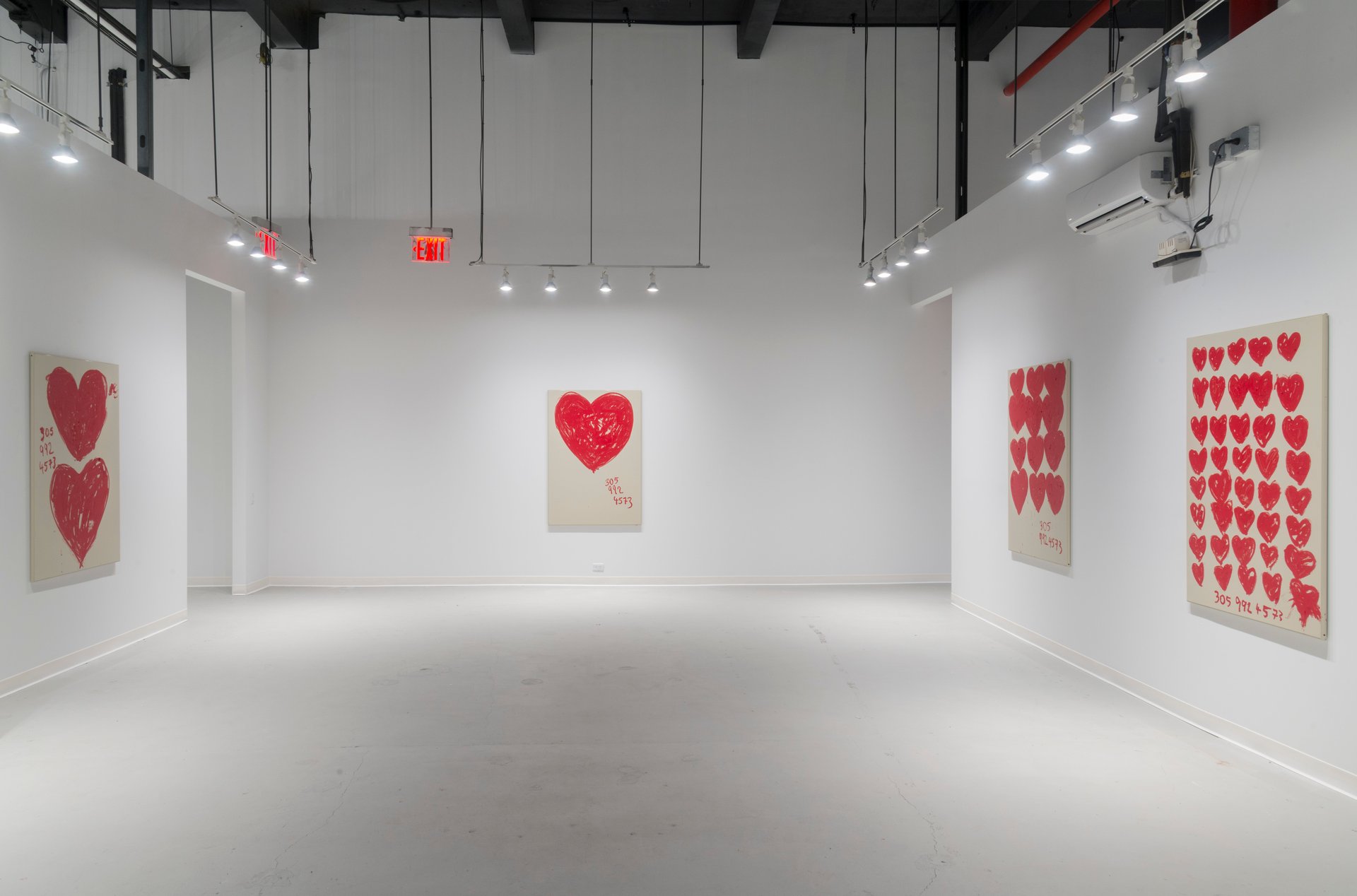An artist wants the public to debate consent—by taking pies to the face
A man approached Jennifer Rubell, an American conceptual artist, and asked if he had her consent. She didn’t respond. He asked over and over again. “Eventually he just did it,” Rubell says.


A man approached Jennifer Rubell, an American conceptual artist, and asked if he had her consent. She didn’t respond. He asked over and over again. “Eventually he just did it,” Rubell says.
The “it” was throwing a cream pie at her face. The visitor was one of many to do so that month—that’s because in her latest exhibition, titled Consent, the renowned food artist is asking viewers to do so. The performance explores power, vulnerability, humiliation, risk, and acceptance.
Rubell’s newest exhibition opened in Meredith Rosen Gallery in New York City this month. The exhibition is divided into two parts; the first is a show of paintings over two rooms. In these paintings, Rubell scrawls her actual phone number and hearts in various forms. In the third and last room, Rubell is found standing on a pedestal in the middle of the room, in front of over a hundred pies. One viewer at a time is allowed to approach Rubell, pick up a pie, and throw it in her face; before doing so, they have to read through and sign a four-page consent form.

“When a person comes towards me, often they’ll look me in the face and ask for a kind of permission or ask me to be ‘OK’ with what’s about to happen. I don’t give them anything, I just stand there,” Rubell tells Quartz. “They already know they have my consent. They have to come to terms with what they’re choosing to do with my consent.”
The consent form is a piece in itself. The form clearly states what Rubell is consenting to, what she isn’t, what she expects of them, and what she would consider a transgression. “Some people read through it and I hear them laughing, some people read through it and I see them take it very seriously,” she says. Everyone has so far followed all the guidelines.
The performance is a physically grueling one. “The first thing I do after someone hits me with a pie is to check my posture and not crumple,” she explains, adding she wants to “really stand there as much a monument as before the pie was thrown.” At the end of every night, Rubell feels shattered and walks away with a mix of emotions. “It is definitely holding to seemingly opposite feelings in my body at the same time; of being a victim, but of also being the kind of overarching power inside of this dynamic,” she says. She points out that she set up the performance, she chooses to stand there most nights, and has people throw a pie at her in the way she’s asked them to.
Though the exhibition has gone on for several weeks, Rubell is still somewhat shocked when someone slams a pie in her face. She says she doesn’t process the emotions she feels during the performance there and then. “My own instructions to myself are really just to stand there and accept what happens and not try to decode anything and feel whatever I feel, not exaggerate it, not amplify it, and just be a human being standing and feeling that.”
Rubell invites the viewers to contact her afterwards. Some have called her, left a voice message, but most just text her. She always responds to the text messages. Some say they like the work, while others awkwardly ask what they’re meant to say (whatever they want). “There’s so much fear and self-protection surrounding human interaction that you can easily miss the pleasure of just getting to know another human being,” Rubell says.
The exhibition comes in the midst of a powerful reckoning on sexual assault and harassment. The #MeToo campaign started as a grassroots social media-based discussion and has since morphed into a movement that is working to empower women in their workplaces and beyond. The leaders of the #MeToo movement were named Time magazine’s Person of The Year, and many have come forward to create #TimesUp—an advocacy group that has founded a legal defense fund for women tackling sexual assault and harassment. Rubell says her work cannot be divorced from the current charged political and social upheaval.
There’s already been significant backlash to the #MeToo movement. The movement is asking hard questions; when is consent being given and in what conditions? Also, even if a situation is legal, does it necessarily make it right? But some say it is already blurring the lines between a non-consensual encounter and one that is awkward and uncomfortable. Rubell’s performance piece is in some ways placing this tension under a magnifying glass.
Food is an important part of unraveling the complexity around consent—and Rubell has long played around with food for her work. In 2011, she invited museum patrons to crack nuts with nude female mannequin legs. Two years later, she put 573 hand-made Chinese egg custard tarts on a table and asked viewers to help themselves. In 2015, she served bread and butter to the audience in a piece titled “Devotion.” For Rubell, food makes it easy for her to break down the boundary between the performer and the viewer.
“It’s the medium that’s always engaged me,” Rubell says. “It’s [food] a physical object that people are used to putting inside their bodies… I think its something people find it easy to physically engage with. They’re used to touching it, they used to having some sort of ownership with it.”
Consent is the first performance that puts Rubell at the epicenter. She says she had to put herself in the performance simply because she couldn’t subject another person to that many pies to the face.